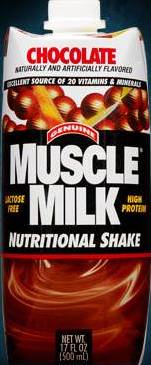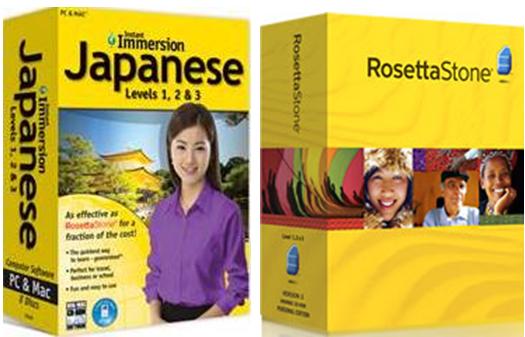Entries in Trademark Infringement (368)
Ninth Circuit Affirms Injunction Against Nutritional Supplement Seller
 Plaintiff CytoSport, Inc., sued Vital Pharmaceuticals, Inc., in the Eastern District of California for trademark and trade dress infringement. CytoSport then moved for a preliminary injunction enjoining Vital from marketing, selling, advertising or promoting a liquid protein-based nutritional supplement using the name MUSCLE POWER or any other trademark confusingly similar to plaintiff’s MUSCLE MILK trademark. CytoSport (CS) also sought to enjoin Vital (VPX) from using trade dress that is confusingly similar to its trade dress.
Plaintiff CytoSport, Inc., sued Vital Pharmaceuticals, Inc., in the Eastern District of California for trademark and trade dress infringement. CytoSport then moved for a preliminary injunction enjoining Vital from marketing, selling, advertising or promoting a liquid protein-based nutritional supplement using the name MUSCLE POWER or any other trademark confusingly similar to plaintiff’s MUSCLE MILK trademark. CytoSport (CS) also sought to enjoin Vital (VPX) from using trade dress that is confusingly similar to its trade dress.
On May 6, Judge Frank Damrell, Jr., granted CytoSport’s motion. The court concluded: “Plaintiff has demonstrated a reasonable likelihood of success in demonstrating that defendant’s use of its MUSCLE POWER® trademark and trade dress infringes plaintiff’s MUSCLE MILK® trademark and trade dress, that plaintiff is likely to sustain irreparable harm to its reputation and customer goodwill absent preliminary relief, the balance of equities tips in plaintiff’s favor in light of its longstanding reputation in the community and use of the MUSCLE MILK® trademark, and the public is served by issuance of the requested injunction which seeks to avoid customer confusion in the marketplace and permits plaintiff to control its products’ reputation.”
On the trade dress issue, the court found: “The features of CS’s trade dress which have been employed by VPX include the following: (1) the package front of the MUSCLE POWER product is visually divided into three sections, top, middle, and bottom; (2) on the middle portion of the package, the word MUSCLE is prominently displayed above the second word of the composite mark in all capital letters in a bold, block-letter, white-colored font on a dark background; (3) on the lower portion of the package a depiction of a swirled colored liquid appears reflecting the color of the product in the package, i.e., brown for chocolate, red for strawberries and cream, etc.; (4) on the top portion of the package, an identification of the flavor in words and a picture appears; (5) on the side of the package, the MUSCLE POWER mark is printed in bold, block-letter font and oriented so the consumer can read the words from the bottom to the top of the package; and (6) VPX uses the Tetra-Pak packages which are created by printing a label directly on to a flat piece of packaging material that is subsequently folded onto a three-dimensional carton that can be filled with the product.
“Defendant’s efforts to expose trivial distinctions between the two marks are unimpressive. VPX points to only subtle differences between the way the marks are used, such as the red outline around its brand name, as opposed to plaintiff’s black outline, and the ‘splash’ on the bottom of its package instead of plaintiff’s ‘swirl.’ These minor differences are ‘trivial distinctions’ especially when viewing the products in full, as they appear in the marketplace. Seen in this light, the marks are glaringly similar.”
Vital appealed these findings. On Oct. 13, the Ninth Circuit affirmed in short order, stating: “We conclude that the district court did not rely on an erroneous legal premise or abuse its discretion in concluding that Cytosport was likely to succeed on the merits and showed a strong likelihood that it would suffer irreparable harm if the preliminary injunction did not issue. Accordingly, we affirm the district court’s order granting the preliminary injunction.”
The case cite is CytoSport, Inc. v. Vital Pharmaceuticals, Inc., 2009 WL 3287630, No. 09-15969 (9th Cir. Oct. 13, 2009).
Chicago Tribune Reports on USOC's Enforcement Efforts in the Windy City
 The Chicago Tribune yesterday ran a piece on the USOC’s enforcement efforts over there. In summary, it’s pretty much the same heavy-handed story we’ve experienced over here.
The Chicago Tribune yesterday ran a piece on the USOC’s enforcement efforts over there. In summary, it’s pretty much the same heavy-handed story we’ve experienced over here.
Case in point: Olympic Meat Packers Inc., which after 40 years changed its name to “Olympia Meat Packers” to avoid a USOC suit. Owner George Tsoukas says he forgets his new name when he answers the phone.
“My customers, they hang up on me and they think it’s a different business,” he says. “I’m so used to ‘Olympic Meat’ … and it’s so hard for me to remember ‘Olympia.’”
I’m surprised the USOC ok’d “Olympia” as an alternative name. Good for them, though one wonders why they demanded a name change at all.
The article includes a short quote from me, saying: “It’s just not fair that the USOC can be casual about its demands when it has such a large impact on the business that has to change its name.”
The article also cites Chicago IP Litigation Blogger David Donoghue for his suggestion that businesses do a trademark search before becoming too wedded to a name.
That’s great advice. It’s a lot easier to pick a new trademark before signs are made, domain names are registered, and customers get used to your name.
Western District Denies Worm Grower's Motion for Summary Judgment
STL’s been covering the “Worm Factory” case a while. Among other things, I dig that plaintiff and defendant worm growers both come from Washington. As readers may recall, this dispute’s about defendant Providnet Co. Trust’s use of WORM FACTORY and similar words in connection with its decomposting bins, which plaintiff Cascade Mfg. Sales, Inc., claims infringes its WORM FACTORY registered trademark.
The Western District has entered a preliminary injunction in Cascade’s favor (STL post here). The court also has found Providnet to be in contempt of that order for continuing to use the words “factory” and “worm factory” in marketing its products (STL post here).
In connection with its contempt order, the court ordered Providnet to inform the court about its efforts to comply with the injunction. Providnet filed a response, which prompted Cascade to file a motion for summary judgment on its trademark infringement claim.
On Sept. 29, Judge Ronald Leighton denied the motion. The court concluded: “After reviewing the materials filed by both parties in the tortured history of this case, the Court is convinced that there are material issues of fact related to the fact and extent of ‘confusion’ between the various product names used by the parties. This is true even though the Court remains convinced that the preliminary injunction was properly granted. Moreover, legitimate issues regarding the Defendants’ efforts to avoid infringement suggest to the court that the relief sought by the Plaintiff in the current Motion would do little to narrow the issues remaining for trial. The Court also wants to point out that the Defendants are not represented by counsel, and have not been able to provide the Court with adequate references to the law. The material submitted has instead consisted of a ‘document dump’ unaccompanied by an explanation of what the documents mean in the context of the larger dispute. Defendants are strongly encouraged to retain counsel, and if they are not able to do so, to prepare to provide the Court legal argument and authority.”
The case cite is Cascade Mfg. Sales, Inc. v. Providnet Co Trust, 2009 WL 3169449, No. 08-5433 (W.D. Wash. Sept. 29, 2009) (Leighton, J.).
Apple Doesn't Have a Monopoly on Fruit Trademarks, PC World Blog Says
The PC World blog has a rundown on Apple’s dispute over Woolworths Ltd.’s apple-ized logo. It concludes that Apple doesn’t have a monopoly on fruit trademarks. It’s case in point — Washington State Apple Commission’s logo. Worth a read, along with its follow-up history of Apple’s trademark disputes over its evolving logos.
Topics Entertainment Sues Rosetta Stone for Declaration of Noninfringement
 Trade dress infringement?
Trade dress infringement?
Topics Entertainment’s (left) and Rosetta Stone’s packaging
On Oct. 5, Renton, Wash.-based Topics Entertainment, Inc., filed suit in the Western District against Rosetta Stone, Ltd., seeking a declaratory judgment that the packaging of its INSTANT IMMERSION-branded language learning software does not infringe Rosetta Stone’s trademark or trade dress rights.
The complaint requests a judgment “declaring that Topics’ use of the color yellow, black font lettering, small blue icons, and pictures of smiling individuals is proper and not in violation of any rights held by Rosetta,” and that “Rosetta has no trademark or trade dress rights to the color yellow, black lettering, small blue icons, or pictures of smiling individuals.”
The complaint also prays for a judgment “declaring that Topics’ use of the phrase ‘As effective as Rosetta Stone for a fraction of the cost!’ does not constitute actionable false advertising.”
The complaint alleges an actual controversy exists because Rosetta Stone sent cease-and-desist letters threatening “alternative measures” to settlement if Topics did not comply with its demands.
Rosetta Stone has not yet answered Topics’ complaint.
The case cite is Topics Entertainment, Inc. v. Rosetta Stone, Ltd., No. 09-1408 (W.D. Wash.).